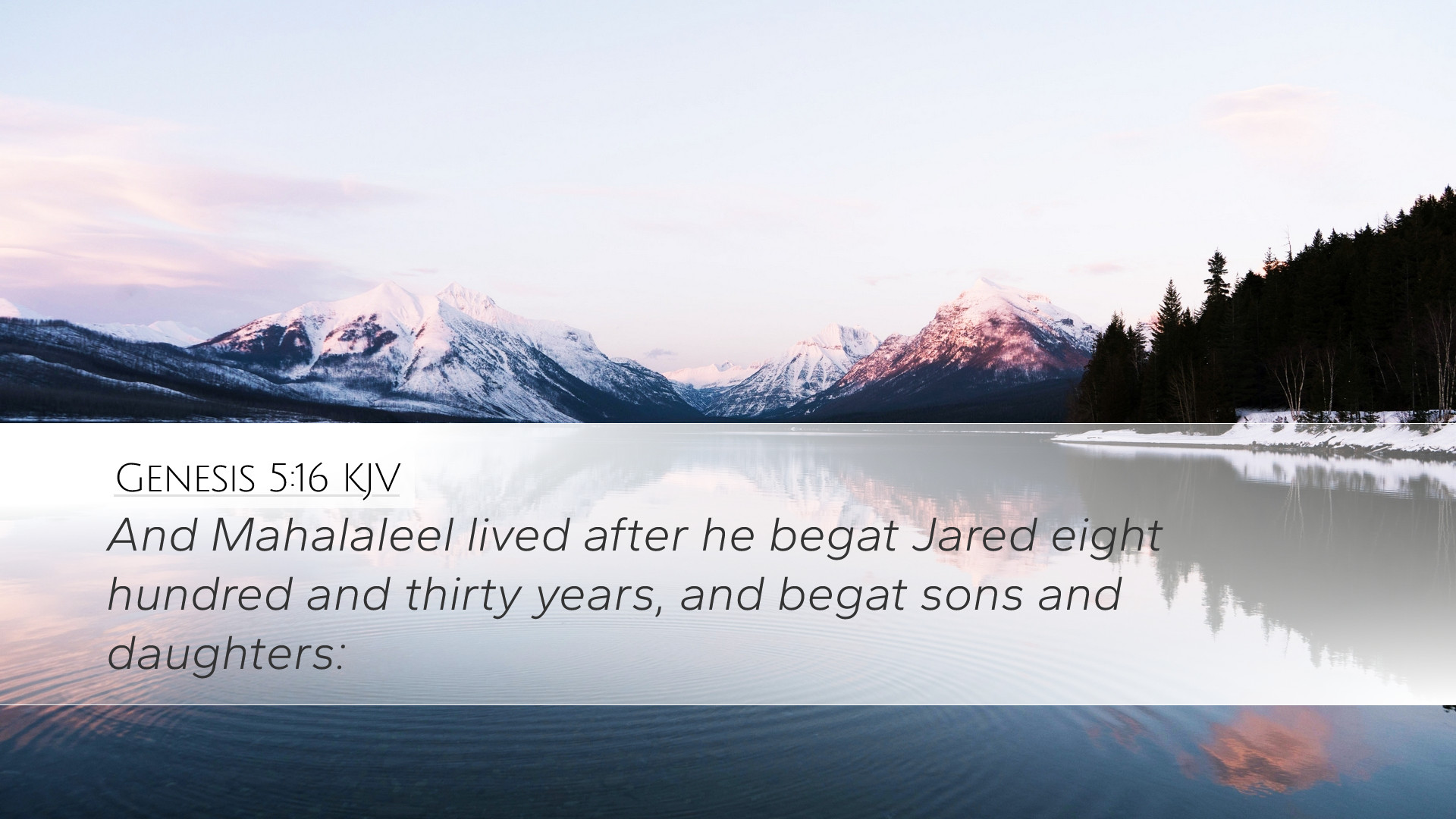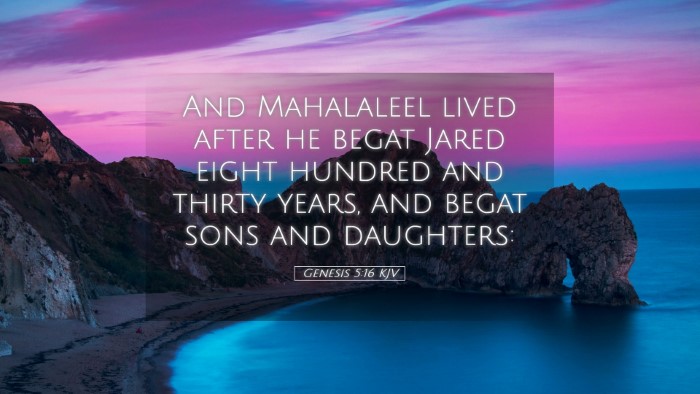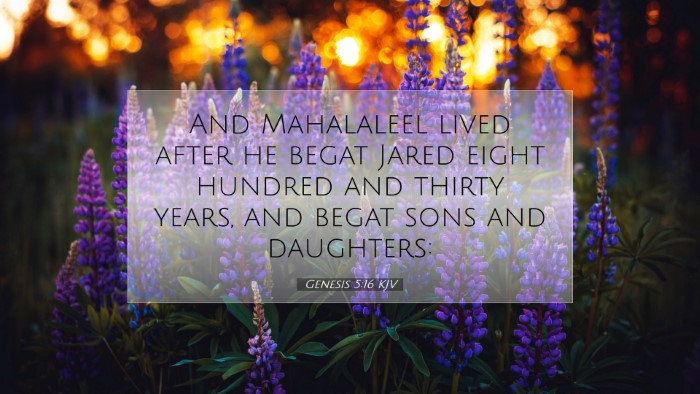Commentary on Genesis 5:16
Verse Reference: Genesis 5:16 - "And Methuselah lived an hundred eighty and seven years, and begat Lamech."
Genesis 5 is pivotal in the narrative of the early human lineage, outlining the descendants from Adam to Noah. In particular, verse 16 features Methuselah, a figure noted for his long life and his role as the grandfather of Noah. This commentary synthesizes insights from various public domain sources, striving to provide a comprehensive understanding of this verse that can enrich the theological reflection of pastors, students, and scholars alike.
Historical Context of Genesis 5
The fifth chapter of Genesis serves as a genealogical record of the faithful line from Adam to Noah. It highlights the long lifespans of the patriarchs, particularly in the antediluvian period. The ages provided not only reflect historical data but also serve theological and symbolic purposes, illustrating the grace and mercy of God, as well as the human condition in relation to divine justice.
Analysis of Methuselah
According to Matthew Henry, Methuselah is notable not merely for his age, which is the longest recorded in Scripture, but also for the implications of his existence. His name, often translated as “When he dies, it shall be sent,” carries prophetic significance, hinting at the coming judgment of the flood during Noah's time. This prophetic nature of his name underscores the idea that Methuselah’s lifespan serves as a symbol of God’s patience and long-suffering.
Albert Barnes elaborates further on Methuselah’s age, emphasizing its symbolic nature. He notes that Methuselah’s 969 years point towards God’s mercy in allowing time for repentance before the flood, encouraging deeper discourse on the theme of divine patience within biblical narratives. The hope extended through Methuselah's life reflects God’s desire for humanity to seek redemption.
Adam Clarke adds additional layers by discussing the connection between Methuselah and his grandson Noah. He emphasizes the continuity of the righteous lineage and suggests that Methuselah may have imparted wisdom and godliness to Noah, fortifying the theological motif of preservation through divine inheritance. This ancestry reminds readers of the significance of faithfulness across generations.
The Birth of Lamech
In the same verse, we encounter Lamech, Methuselah's son. Following the tradition of naming children with purpose, Lamech’s birth at the age of 187 adds to the narrative arc of Genesis 5. Matthew Henry identifies Lamech's significance in being part of the lineage that will lead to Noah, linking him directly to the story of divine judgment and eventual salvation from the flood. This point resonates with the theme of hope amidst impending judgment.
Barnes notes Lamech’s role as pivotal, highlighting how his name means "power" or "strong," indicating a strong lineage that leads to Noah, who finds grace in the eyes of the Lord. The mention of Lamech lays groundwork for Noah's exceptional role in biblical history, positioning Lamech as reflective of God’s ongoing work through successive generations.
Theological Reflections
This verse, while simple, encapsulates profound theological truths. It underscores the interplay of sin and grace, life and death, judgment and mercy. God’s long-suffering nature in permitting Methuselah to live for so long serves as a reminder of His grace, as highlighted by Clarke, who remarks on the importance of Methuselah's lineage in the unfolding plan of redemption.
- Divine Patience: The lifespans in Genesis 5 illustrate not only the physical reality of human existence but also the theological implications of sin and judgment awaiting humanity. Methuselah serves as a living testament to God’s enduring patience.
- Legacy of Faith: Both Methuselah and Lamech serve as markers in biblical history that highlight the importance of spiritual legacy. Their lives contribute to the unfolding plan of God as He prepares for the flood and a new beginning through Noah.
- Prophetic Names: The names within this genealogical account carry weight, foreshadowing events and emphasizing God's sovereign control over history. Methuselah’s name prophesies impending judgment, and Lamech’s reflects strength within God's chosen lineage.
Conclusions for Outreach and Teaching
In teaching Genesis 5:16, pastors and theologians should lean into themes of legacy, mercy, and the rich narrative of grace that God extends toward humanity. This verse serves as a gentle reminder of the ongoing story of creation and redemption, calling each generation to reflect on its own witness and impact. The mention of these key patriarchs invites believers to consider their legacy and how they might likewise contribute to God's unfolding story in their time.
Furthermore, church leaders might encourage congregations to reflect on their spiritual lineage, recognizing the importance of investing in future generations, as Methuselah's life and his lineage ultimately culminate in the one who will preserve humanity through the flood, revealing the centrality of Christ in redemptive history.


